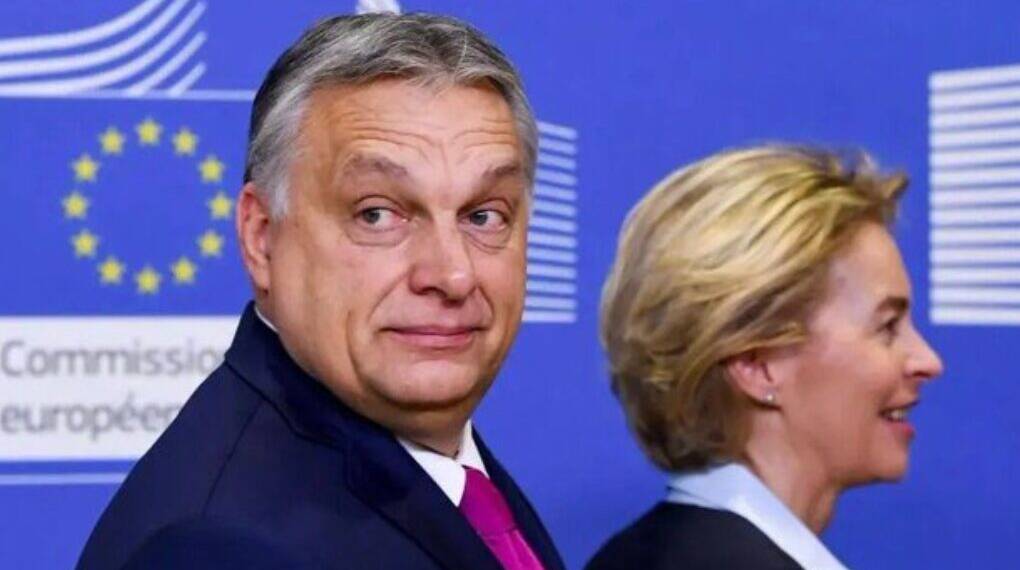In a move that could reshape the political balance within the European Union, Hungarian Prime Minister Viktor Orbán is spearheading the creation of a new political alliance alongside Slovakia and the Czech Republic. The emerging coalition aims to coordinate opposition to EU policies on Ukraine aid, migration, and climate regulation, while also seeking to influence leadership changes within the bloc — including a potential challenge to European Commission President Ursula von der Leyen.
A Revival of the Visegrád Spirit
The initiative draws inspiration from the Visegrád Group (V4) — a regional alliance formed in 1991 by Hungary, Slovakia, Czechia, and Poland to promote cooperation during post-communist transition and EU integration. However, in recent years, this grouping has taken on a more Eurosceptic and nationalist tone under Orbán’s leadership.
While Poland, under Prime Minister Donald Tusk, has reoriented itself toward a strongly pro-EU stance, developments in Slovakia and Czechia appear to be giving new life to the bloc’s right-wing wing. Slovakia’s Prime Minister Robert Fico, re-elected in 2023, has prioritized domestic economic issues over continued support for Ukraine, while Czechia’s populist leader Andrej Babiš — whose ANO party performed strongly in the October 2025 elections — has voiced skepticism about what he describes as “open-ended” financial assistance to Kyiv.
Together, these leaders share concerns over what they consider to be excessive centralization in Brussels and the EU’s growing alignment with Washington on security matters.
Opposition to Ukraine Aid and EU Spending
At the center of the alliance’s early agenda is the EU’s €50 billion Ukraine Facility, a multi-year funding package intended to support Ukraine’s reconstruction, defense needs, and governance reforms. Hungary has already delayed the disbursement of this aid on multiple occasions, citing concerns over transparency and escalation risks.
Now, with the potential backing of Slovakia and Czechia, Budapest could gain stronger leverage in the European Council, where unanimous approval is required for foreign policy and budgetary decisions.
Both Fico and Babiš have publicly questioned the sustainability of Europe’s military and economic commitments to Kyiv, warning that continued spending could strain national budgets at a time of inflation and energy challenges. Analysts suggest that coordinated opposition from this emerging “Visegrád axis” could slow down or complicate future Ukraine-related funding decisions.
Strategic Lobbying for Conservative Influence
Beyond foreign policy, Orbán’s efforts are also directed toward reshaping the EU’s internal political balance. His Fidesz party has become a key force within the Patriots for Europe group in the European Parliament — a right-wing alliance that includes France’s National Rally, Italy’s League, and Austria’s conservative factions.
The group, which gained significant ground in the 2024 European elections, now represents a sizable bloc advocating for reduced EU oversight on national policies, stricter border controls, and a rollback of environmental regulations tied to the Green Deal.
According to Balázs Orbán, the Hungarian prime minister’s political director, the coalition intends to “make itself more visible in the European Council” and act as a counterweight to what he describes as the EU’s “liberal establishment.”
A Challenge to Ursula von der Leyen
European Commission President Ursula von der Leyen has become a key focal point of criticism for Orbán and his allies. They accuse her administration of excessive interventionism, a “militarized” approach to Ukraine, and the promotion of progressive social policies that they view as out of touch with conservative European values.
In recent months, right-wing parties have attempted to introduce no-confidence motions in the European Parliament targeting von der Leyen’s leadership. While she survived both votes, the debates underscored growing polarization within EU institutions.
Von der Leyen continues to maintain support from the centrist EPP-S&D-Liberal coalition, though internal dissent has reportedly increased, with some members calling for a more conciliatory approach toward member states facing political disputes with Brussels.
Divisions and Risks Ahead
The potential consolidation of a right-wing bloc led by Hungary, Slovakia, and the Czech Republic poses significant challenges to EU decision-making. The use of veto powers could increase, leading to potential gridlock on issues ranging from Ukraine aid to migration reform and climate targets.
At the same time, leaders such as France’s Emmanuel Macron and Germany’s Olaf Scholz may seek alternative channels for cooperation, including bilateral or smaller multilateral arrangements outside of the full EU framework. While this could preserve policy momentum, it would risk undermining the EU’s cohesion and long-standing principle of unity in decision-making.
Domestically, Orbán continues to emphasize national sovereignty and conservative values, portraying Hungary as defending its cultural identity and economic independence from what he calls “Brussels-imposed agendas.” Similar narratives have gained traction in parts of Central Europe, particularly amid economic uncertainty and public fatigue over the prolonged war in Ukraine.
What next? Europe at a Crossroads
The emerging right-wing alliance underscores a deeper ideological divide within the European Union — one that pits advocates of closer integration and liberal democracy against those seeking a looser, sovereignty-centered model of cooperation.
While Orbán’s bloc is still far from achieving a majority in EU institutions, its growing influence could affect upcoming decisions on budgetary frameworks, enlargement, and the future of defense policy.
Whether this development leads to meaningful reform within the EU or prolonged internal paralysis will depend largely on how Brussels responds — through negotiation, compromise, or confrontation.
For now, Orbán’s message is clear: the European Union, as currently structured, is facing a serious internal challenge — not from the outside, but from within.








